Andrew Crofts's Blog
March 18, 2025
The day Dave Eggers, JeanM. Auel, Jacqueline Wilson, J.M...
The day Dave Eggers, JeanM. Auel, Jacqueline Wilson, J.M Coetzee and Donna Tartt asked to be my friends.
It all started when Iannounced the publication of my latest book, (A novel ironically titled “On theBacks of Others”), on a number of Facebook Groups dedicated to writing andwriters. My Facebook page was immediately inundated with people congratulatingme, telling me how much they liked the cover and the synopsis of the plot,asking me to tell them more about my “writing journey” and my “inspirations”,wanting me to describe the “greatest challenges” I had faced in the writing,asking if this was my first published work and what my marketing plans were.They all professed that they wanted to be my friends in order to swap authortales while sitting at my feet, gazing up at me, adoringly, (that mentalpicture I added myself).
For a few heady moments Iwas thrilled to receive such an avalanche of reactions so quickly afterpublication, but then I noticed that they were all asking the same questionsand they were all then telling me that they could help me to get reviews onAmazon, or increase my sales in the same way they had done for their own books,with a variety of magic marketing strategies. Apparently, it was all going tobe extremely affordable. So far, so predictable. I mean everyone’s got tohustle a living in any way they can, right? Even a Bot.
Then Dave Eggers got intouch. Yeah, I know – Dave Eggers. I did a quick bit of due diligence and itcertainly looked like him and sounded like him. Now I happen to be a big fan,so this hit a button for me. I asked if he was the real deal, and he assured mehe was, and he chatted so convincingly that I suspended all disbelief and wentwith the flow. I mean – it was Dave Eggers! After a bit of affable, writerly, to-ingand fro-ing, he then offered to brief his team to help me to get more reviewson Amazon, and my disbelief was no longer suspended. I mean, I fully believethat the charming Mr Eggers would be helpful if he could, |his track record insuch matters is impeccable, but what were the actual odds that he would decideto bestow his kindness on someone he has never heard of, who lives on the otherside of the pond?
Then I noticed that oneof the others who had been offering to help was none other than Jean M. Auel.And then, as if that was not exciting enough, I got messages from JacquelineWilson, Catherine Steadman, J.M Coetzee and Donna Tartt. If any of theseauthors genuinely did contact me in order to congratulate me on the stunningcover of my book, and on my amazing achievement of being published, I apologisefor doubting you. But I have a strong suspicion someone is pulling my leg.
The question that occursto me, however, is do any of these distinguished authors have any idea thatthey are being impersonated in this way? I seem to remember there was someonewho got away with impersonating Graham Greene for years, back in the analoguedays of yore, but the digital world seems to have taken this template toextraordinary heights.
There is an army ofimposters on line, pretending to be famous authors, in order to win theconfidence of less famous authors and sell them services of dubious value orquality, but the saddest part of the whole story is that I really enjoyed beingDave Eggers friend for those few minutes.
January 10, 2025
50 Years of Being a Full-time Freelance Writer Andrew Cr...
50 Years of Being a Full-time Freelance Writer
Andrew Crofts
I have been earning a full-time living as a freelance writer for fifty years. There have been ups and there have been downs. The “ups” have included the month where two of my books received advances of £300K each, and the month where I had four books in the Sunday Times bestseller list simultaneously. There was also the book which eventually sold something north of five million copies, and the client who wanted to meet on his private island in Bermuda. There have been books ghostwritten for heads of state and bonded labourers, refugees, genocide survivors and child brides, pop stars, soap stars, reality tv winners, hairdressers, and Basil Brush.
These “ups” are the jewels of memory that sparkle amidst the decades of typing, submitting and waiting for industry gatekeepers to get back to me, and all the manuscripts which were rejected by every agent I could find, let alone every publisher. Then there were the editors who “loved” the books but wanted them totally rewritten, and the books that were published but sold not a single copy – a sort of slow death by rejection. There were the publicists who cheerfully gave up trying to get media coverage after a week, editors who changed employers half way through the editing process, or fell pregnant, or died. There were the legal departments who covered pristine manuscripts with their scribbled worries, and there were the reams and reams of unintelligible royalty statements that have been landing on the doorstep every few months, telling me I still owed the publishers thousands of pounds.
The end result of these first fifty years? I have published over a hundred books and managed to support a family and raise four children. If I’d possessed a crystal ball fifty years ago, would I have embarked on the same life journey? Absolutely.
When my journey started, in 1970, my manuscripts were bashed out on a pre-war, upright typewriter, and dispatched by post, with self-addressed envelopes, direct to publishers, (after lengthy searches for the right addresses). After months of heady dreaming, the now tattered envelopes would arrive back, accompanied by dream-crushing rejection notes. I doubt that process had changed much over the previous hundred years. But I was seventeen and optimistic. I had written my first novel, (when I was meant to be paying more attention to my exams), and I was moving to the bright lights of “swinging” London, to share a flat in Earls Court with a dozen or so people, all of us quite certain we would be rich and famous very soon indeed.
It would take five years of hard typing and draconian budgeting, trying out every avenue of freelancing, before I was selling anything I had written, and ten years before I had managed to carve a small niche as a travel writer. In between hammering out more submissions to publishers, I was then able to visit exotic places I would otherwise not have got to, meeting exotic people I would otherwise never have had access to, providing more for me to write about in my fiction.
By 1990, twenty years after setting out, I was actually making it in through the doors of agents and publishers in my search for people who would fund publication of my work, since I could not afford to fund it myself. One of the books I wrote was “Sold”, the story of Zana Muhsen, which would, over the following few years, sell in many countries, one year becoming France’s bestselling non-fiction title.
By the time the Millenium ended, my income was steady and technology was starting to streamline the lives of all writers. Word-processing was doing away with the need for endless drafts and messy struggles with carbon paper and Tippex, and the gradual adoption of email was turning self-addressed envelopes, and frustrating queues at the post office, into unmourned memories.
Amazon was opening up new ways for writers to reach wider audiences. The gatekeepers within the agencies and publishers remained trapped inside the culture of waiting - it does, after all, still take a lot of time to read a manuscript – but writers could now circumnavigate these waiting rooms from hell, and even cut down on the levels of rejection they had to face.
So today the main challenge is proliferation. Because it has become easier to produce manuscripts, there are far more of them out there, competing for everyone’s time, and AI is destined to magnify that problem a millionfold.
But writers also now have the services of creative agencies and bespoke publishers to call upon. Coming to Whitefox, for instance, feels, to this world-weary traveler, like being ushered left as I walk onto a long-haul flight, after decompressing in a comfortable airport lounge, insulated from the anxiety-inducing queues and jostling crowds.
Writers no longer have to sign away their copyright, which means that they can keep any money generated by their work, not just a tiny percentage of it. We can maintain ultimate creative and financial control, while at the same time receiving advice from all the same experts who work for the traditional publishing houses. Above all, however, just as when you turn left on a plane, or visit a private consultant with an ailment that is worrying you, you encounter people who will take the time to be as supportive and helpful as possible.
As with the airlines and the doctors, of course, there is an upfront cost for these services, and there is always a risk that you will not earn enough to cover those costs. But as anyone who has ever stretched out flat on a bed during a long-haul flight knows, it is sometimes worth investing if it avoids having to spend twelve hours crowded into the back of a plane with your knees under your chin, sleeplessly waiting for the ordeal to end, while being ignored by the overworked cabin crew.
March 11, 2019
What Lies Around us, a sequel to Secrets of the Italian G...
Why would one of Silicon Valley’s most powerful billionaires offer a British ghostwriter a million dollars to write the autobiography of one of Hollywood ’s biggest stars? Only once he is living and working amongst the world’s richest and most beautiful people does the ghost realise that there is way more than a publishing deal at stake.
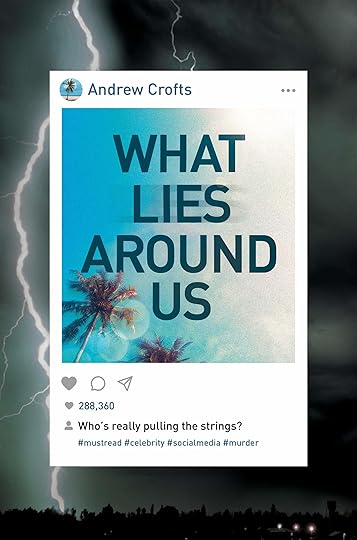
What Lies Around Us takes us to a world where ghostwriters work with presidents, (James Patterson and Bill Clinton writing The President is Missing), and create presidents, (Tony Schwartz who ghosted The Art of the Deal , setting President Trump on the road to becoming the most famous name in the world). This is the world of myth-makers, story-tellers and media manipulators – the people who really run the world and the ones who shape the global conversations.
October 23, 2017
Why Everyone Should Write a Book – Even if No-One Reads It – Just for the Sheer Joy of Creation.
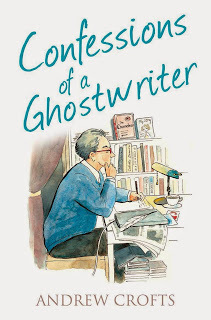
“Everyone has a book in them” or so the cliché goes, but in the past the gatekeepers of the publishing world would throw up their hands in horror at such a sacrilegious, egalitarian thought. Now their power to select which stories do and which stories don’t ever get into print has gone; we can all write and publish whatever we want, as long as we are not worried about things like sales figures or royalty payments. As long as we undertake the project for sheer enjoyment alone.
Why would you want to do it? Well, to start with, it’s fun. Remembering the past in order to write a memoir, getting something off your chest if you have a topic you feel strongly about, laying out your expertise if you want to write a how-to book. These are pleasant things to do.
If you are writing a memoir or a family history there is no telling how many people in the family will be thrilled to read it, or use it as reference for a book of their own, either now or centuries in the future. All the people who spend happy hours on heritage sites like Ancestry.com would be delighted if they came across a book by an ancestor which threw new light on their researches. Most of us have questions that we wish we had asked our parents or grandparents before it was too late, and would be thrilled to find the answers between the covers of a book.
The cost barriers are gone because now you can publish on-line for free and you can print-on-demand a few copies for next to nothing. If you want the book to have greater quality, or to be printed in greater quantities, you can hire experts to help with the writing, the editing, the cover design and whatever else you require – but none of that is compulsory if you think you can do it alone and have the time to dedicate to learning the necessary skills.
So even if no-one else ever reads the whole book, you have still had the enjoyment of creating it and the satisfaction of seeing the task completed.
But maybe that won’t be the end of it. It is always foolish to dream of writing a “bestseller” – just as it is foolish to dream of winning the lottery, but that doesn’t stop millions of people from buying lottery tickets every day, and getting pleasure from their dreams of winning a fortune. Once you’ve written the book you can put it in a drawer and leave it to serendipity as to whether it is ever read, or your can give copies to friends and relatives who you think might be interested, or you can see if you can sell some copies or garner some reviews – there’s nothing to lose apart from the time you put into the project, and everything to possibly gain.
If you decide to invest money in editorial, publishing or marketing services then you need to be sure that you are happy to write that money off should the project fail to produce any sort of pay-back – but if it has been a pleasure to do, then does that matter? Someone who loves golf and spends money on the game doesn’t expect to make a fortune as a professional player, an artist who enjoys painting watercolours at weekends doesn’t expect to get them shown in top galleries and bought for millions by collectors. The pleasure lies in the creation of the thing, not the selling of it. Not that there wouldn’t be pleasure to be had from successfully selling that thing once created, but that would just be a bonus.
If the idea of writing a whole book seems too daunting then start out by talking into a tape machine and transcribing your words later, or simply think of it as a long letter to a friend, telling them everything about your story. Once the bulk of the material exists the editing and development of the material is relatively easy, (and is another job you can hire people to help with if you have a budget).
It seems a shame to pass through life and never leave anything written down for posterity – whether or not posterity takes any notice, of course, is beyond your control.
December 16, 2015
The Ghostwriter as Hero
We live our lives episodically, like the detectives, doctors and lawyers who are so often used as the narrators, protagonists or, dare I say it, heroes of fiction and drama. Each episode opens with the story arriving in the protagonist’s life or with a mysterious email or phone call from a stranger that leads to an adventure and the unearthing of a story.
Detectives then solve their cases, doctors cure their patients, lawyers win their cases and ghostwriters create their books.
That is why two of my novels have ghostwriters as narrators. Not only do I have the background information on how the ghostwriting business works, and not only does my profession lead me to a variety of exotic locations, from palaces to brothels, but it also supplies an endless stream of interesting characters with interesting stories to tell.
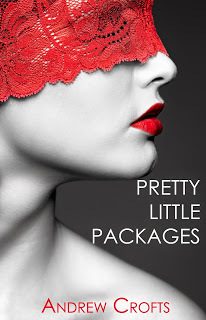
In Pretty Little Packages (Thistle Publishing), the ghost is informed by a girl called Doris that someone has “stolen her beautiful breasts”. She asks for his help and he finds himself plunged into the dark and dangerous worlds of people-trafficking and modern slavery. Much of the action happens in the Far East, a part of the world where I have worked a great deal as a ghost.
At the other end of the social scale from sex slaves are the rich and the powerful, who also like to write books. Since they are always short of time they also need to employ ghostwriters to do the actual writing, particularly if English is not their first language. The global elite, whether they are political leaders, business leaders or celebrities, live in a world which ordinary people seldom get to see inside, which puts ghostwriters at a huge advantage. They also live the sort of lives which produce endless story-lines.
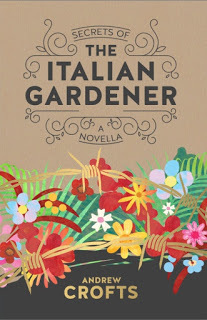
Secrets of the Italian Gardener (RedDoor Publishing) is a novella I have written as a result of those encounters, again using a fictional ghostwriter as the narrator. In this case he has been hired to tell the story of a Middle Eastern dictator during the Arab Spring. Trapped inside the dictator’s besieged palace the ghost, who is harbouring a terrible secret of his own, forms an unlikely friendship with a wise and seemingly innocent gardener and unearths more than he expects as the dictatorship crumbles around him. He discovers that the regime, and indeed the garden itself, is not all it appears to be and he discovers the shocking truth of who really holds the power and wealth in the world.
Like detectives, lawyers and doctors, ghostwriters are the holders of other people’s secrets, the raw material of all fiction and drama.
March 18, 2015
The Dublin Coincidences
If writers used co-incidences in their plots as often as they actually occur in life, few readers would be convinced. In April a book that I ghosted, Secret Child by Gordon Lewis, is being published by HarperCollins. It is based in Dublinand is the inspiring story of a boy who was born and brought up in a secretive home for unmarried Catholic mothers in the 1950s.
By sheer co-incidence, this Saturday I am being interviewed at the Mountains to Sea Book Festival in Dublin– a city I have never been to before. What are the chances?
On top of that I am being interviewed by Sue Leonard, a journalist I talked to for the first time a few months ago when she interviewed me for the Irish Examiner upon the publication of my memoir “Confessions of a Ghostwriter”.
It seems like the whole thing was just meant to be.
Secret Child is a touching story. Gordon had no idea what his mother had gone through before she arrived at Regina Coeli and he had no idea that he was a secret from her family and from everyone else in the outside world. No one outside the hostel knew that he even existed.
In fact he knew nothing of the outside world until he was old enough to start getting out of the hostel buildings and up to mischief in the streets of Dublin. That was when his mother realised that she was going to have to do something to save her boy from the sort of bleak future that faced so many illegitimate children in Irelandat that time – and save him from the dangers of his own reckless high spirits.
So, at the age of eight, Gordon was introduced to a much older man called Bill and told that he and his mother were going to be leaving the hostel, which had been the only home he had ever known, and travel to England to live with Bill. Over the following years, as the three of them struggled to survive, Gordon came to realise that there was more to his mother’s and Bill’s story than he could ever have imagined.
They had been lovers who had been separated by the religious divides of the time and by the ignorance of their families. Gordon knew Bill was not his real father, but no one ever talked about that, just as no one ever talked about their past life in Ireland. It was like it had never existed. Gordon’s whole life was full of secrets and puzzles and only when he returns to Ireland fifty years after leaving it, is he finally able to make sense of the whole story and understand the full horror of the hardships his mother suffered and the depth of the love story between her and Bill.
It will be wonderful to get to spend a weekend in the city that I have been writing about and experiencing so vividly through the eyes of another.
March 4, 2015
A Day in a Ghostwriter's Life
Some days there might be an invitation to fly to a private island on a private jet, or to spend a night lurking in the shadows of a back street brothel with a girl forced into sexual slavery. Most days, however, ghostwriters are like every other sort of writer, bashing away at our keyboards for hours on end. So, let’s pick one of the more interesting days.
Their enquiry had stood out from the usual half dozen that arrive on my screen each day. James emailed that he and his girlfriend, Penny, lived in Switzerlandand were looking for a ghostwriter to tell their love story. He warned that it would contain sexual elements that many would find shocking, but that there would also be many lessons to be learnt from it. He told me they would be in Londonthe following weekend and would be staying at the Dorchesterin Park Lane. Since I was going to be in Mayfair that Sunday anyway, interviewing an African President whose memoir I was ghosting, I suggested I pop into the Dorchester once I was finished.
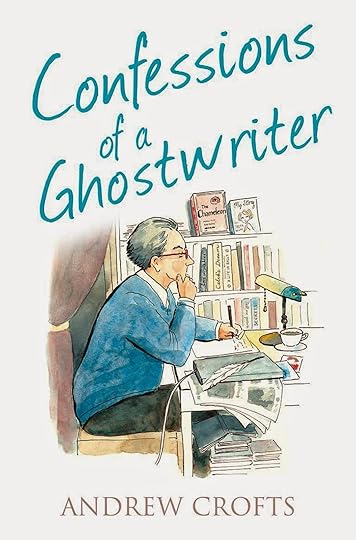
The President, an easily distracted man of almost infinite good humour, had to break off from our meeting to deal with a crisis and I found myself free in the middle of the day. James invited me to join them for lunch at Zuma’s, a famous Japanese restaurant in Knightsbridge. Even if nothing came of the book it would be an interesting lunch and would pass the time until the President was free to resume talking.
The couple waiting at the restaurant were extremely good looking, reserved and charming at the same time, intent on making me feel comfortable in their company despite being completely wrapped up in their adoration of one another and being about to share some amazingly personal details about their lives. One chilled bottle of wine followed another as they shyly revealed their tale of true love.
They had met as teenagers and, like Romeo and Juliet, were forced apart by family pressures. Unlike Shakespeare’s star-crossed lovers, however, these two had been given a second chance, which they had turned into something magical and deeply erotic. By the time the espressos came I was hooked and had agreed to fly out to Switzerlandthe following weekend so that I could start the process of “becoming Penny” in print.
I was so in thrall to their story I only realised the whole afternoon had sped by when my phone buzzed to tell me that the President was now ready to talk again over dinner. Grabbing a cab back to Mayfair I set the tape recorder going once more and realigned my brain, submerging myself inside the head of a man clinging to power in a dark and dangerous world, many miles from the hushed luxury of the room we were going to be spending the evening in.
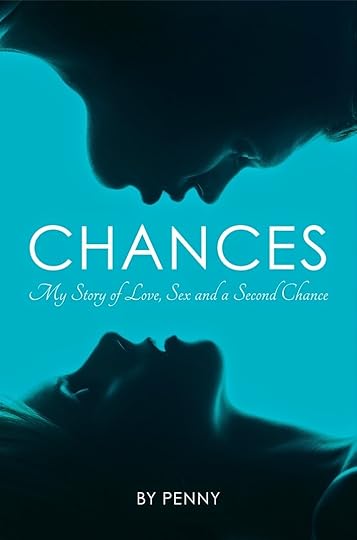
February 18, 2015
Five Reasons People Like Owning Slaves.
1. Slaves make you rich. Without them you can’t build pyramids, railways across Burma, skyscrapers in the desert or very cheap clothes because the wage bills would be too high.2. Slaves make you feel important because you can force them to suck up to you, even if everyone else thinks you are a complete plonker.3. Slaves make life very comfortable for you because they can be forced to do all the most unpleasant jobs around the house while you loll on the sofa.4. Slaves have to have sex with you even when no one else in the world would touch you with a barge-pole.5. Slaves allow you to be true to yourself because they can never turn round and tell you that you are just a bully and a loser.
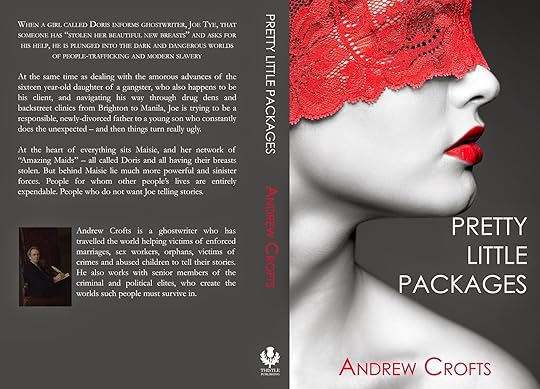
February 17, 2015
Ten Most Heroic Professions in Thrillers and Dramas
Virtually all the central protagonists in great thrillers and popular dramas tend to belong to the same handful of professions.
The most notable exceptions are those heroes with “special powers”, although of course some of them, like Clark Kent himself, have professional day jobs. (For Clark it is being a “mild-mannered reporter”, which has always struck me as a contradiction in terms).
So, if we take out those with “special powers”, from Batman to the Six Million Dollar Man, what would be the ten most frequently used professions for the heroes and heroines of thrillers and dramas?
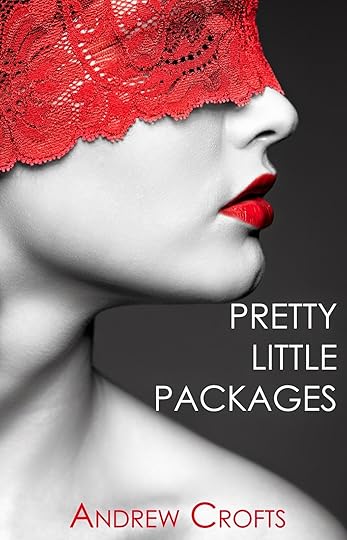
Policemen and women inevitably get a good showing because they inhabit exactly the right terrain, dealing with baddies on an hourly basis and solving crimes like the rest of us solve Sudoku puzzles. From the Scandi Noirs to the mean streets of NYC and downtown LA, the dreaming spires of Oxford to the golf club in Midsommer, the principles are the same. The cops are in at the beginning of a drama and stay to the end.
Doctors. They have always been a trusty mainstay. They are the ones who have to deal with the murder victims as well as the critically ill, inevitably becoming involved in the personal crises of other characters.
Soldiers. Obviously, from Flashman to Biggles, they get centre stage in any war drama or thriller, but then there are all the peace-keeping tensions for them to sort out too, from Irelandto the Middle East.
Amateur and Private Detectives. From Philip Marlowe to Sherlock Holmes, from Miss Marple to Monsieur Poirot, they have all the skills of the professionals but the dramatic advantage of leading lives more like our own – sort of.
Lawyers. From solicitors to judges they have the same access to crime and dramatic tales of conflict and justice as the police and the doctors, plus they can wear smart suits and funny wigs.
Secret Service Operators. From Bond to Bauer, the Man from Uncle to John le Carre and Homeland, they get to run the biggest, scariest plots in town, (apart from the superheroes of course).
Medical Experts. These are all the folks who inhabit the same dramatic landscape of sickness, violence and death but aren’t doctors. They are the nurses and midwives, pathologists, criminal psychologists and forensic experts.
Reporters and Journalists. Almost by definition they have access to the best stories and they get to go where the action is; plus they have the added drama of looming deadlines.
Wealthy businessmen and women. These are the guys who run big corporations, (think Richard Gere in Pretty Woman). They fly around in private planes and run dysfunctional families in places like Dallas and in shoulder pads like Joan Collins. They are mostly morally dubious but they get to wear even better suits than the lawyers.
Authors and Ghostwriters. Here’s where I get to confess a personal interest.
I happen to think that ghostwriters are in a similarly fortuitous position to many of the above when it comes to being at the centre of thrillers and dramas. Like all the above their lives tend to be episodic; they receive a commission; they are led into some strange and interesting world that they previously knew nothing about.
The ultimate tale with the ghostwriter as protagonist must be The Ghost by Robert Harris, later turned into a film by Roman Polanski, with Ewan McGregor at the centre of the plot. I have used the same device myself. In Secrets of the Italian Gardener the narrator is a ghostwriter who finds himself trapped inside the palace of a Middle Eastern dictator as a revolution brews outside the walls. In Pretty Little Packages, recently published by Thistle Publishing, the ghostwriter is drawn into the worlds of people-trafficking and modern slavery when a girl called Doris asks him to write her story because “someone has stolen her beautiful new breasts”.
I guess it is partly the lure of all these fictional adventures which attracts so many of us to follow paths into the professions. Then, when real life turns out not to be quite as exciting as the authors and dramatists led us to believe, we have the books and films to escape back to once we get home from the office.
February 12, 2015
"Pretty Little Packages" from Thistle Publishing
Fifteen years ago I was ghostwriting books for the most disenfranchised members of the global community; victims of enforced marriages, sex workers, orphans, victims of crimes, bonded labourers and abused children. Out of those experiences I wrote a novel, (initially entitled “Maisie’s Amazing Maids”, and now re-launched by Thistle Publishing as a sumptuous paperback and e-book entitled “Pretty Little Packages”).
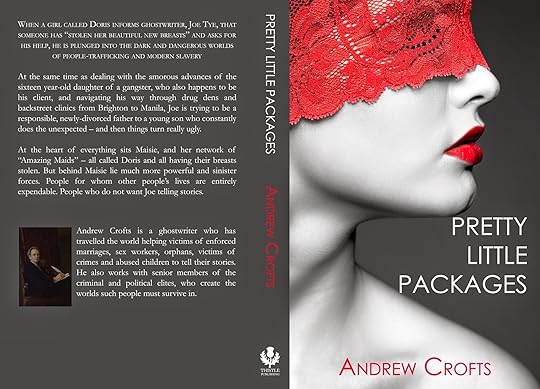
Thistle is an enormously successful imprint set up by London agents Andrew Lownie and David Haviland to keep books alive and available when the more traditional publishing organisations are no longer willing or able to do so. While there have been some grumblings in the industry about the possible ethical problems of agents acting as publishers, and the Society of Authors recommends careful scrutiny of the contracts, Thistle has shown exactly how an agent/publisher can fill this gaping hole in the market, providing another potential stream of revenue for authors.
Electronic developments mean that publishers like Thistle can operate with minimal capital outlay, able to be nimble and responsive to the demands of both authors and readers in ways that are impossible for organisations that have invested in vast, glass, riverside tower blocks and mighty wage bills.
Until a book or author becomes a phenomenon, (step forward J.K. Rowling, E.L. James, Patterson, Donaldson, Walliams, Paddington et al), we authors are really more suited to the cottage industry style of production and marketing than the corporate. A book that can provide a good living to an individual author and an individual agent/publisher is often hard pushed to make any significant contribution to the bottom line of one of the mighty glass tower corporations.
Joe Tye, the ghostwriter protagonist at the heart of Pretty Little Packages, is definitely working at the “cottage industry” end of the business when he is approached by a girl called Doris, who informs him that someone has “stolen her beautiful new breasts” and asks for his help. Responding to her plea plunges him into the dark and dangerous worlds of people trafficking and modern slavery – his discoveries making the glass tower publishers suddenly eager to open their cheque books to him.
At the same time as dealing with the amorous advances of the sixteen year-old daughter of a gangster, who also happens to be his client, and navigating his way through drug dens and backstreet clinics from Brighton to Manila, Joe is trying to be a responsible, newly divorced father to a young son who constantly does the unexpected – and then things turn really ugly.
At the heart of everything sits Maisie, and her network of “Amazing Maids” – all called Doris and all having their breasts stolen. But behind Maisie lie much more powerful and sinister forces. People for whom other people’s lives are entirely expendable. People who do not want Joe telling stories.
Back in the real world; the more publishing companies there are like Thistle the more chance that stories will be told which the denizens of the glass tower blocks would otherwise allow to disappear – stories like Pretty Little Packages.



